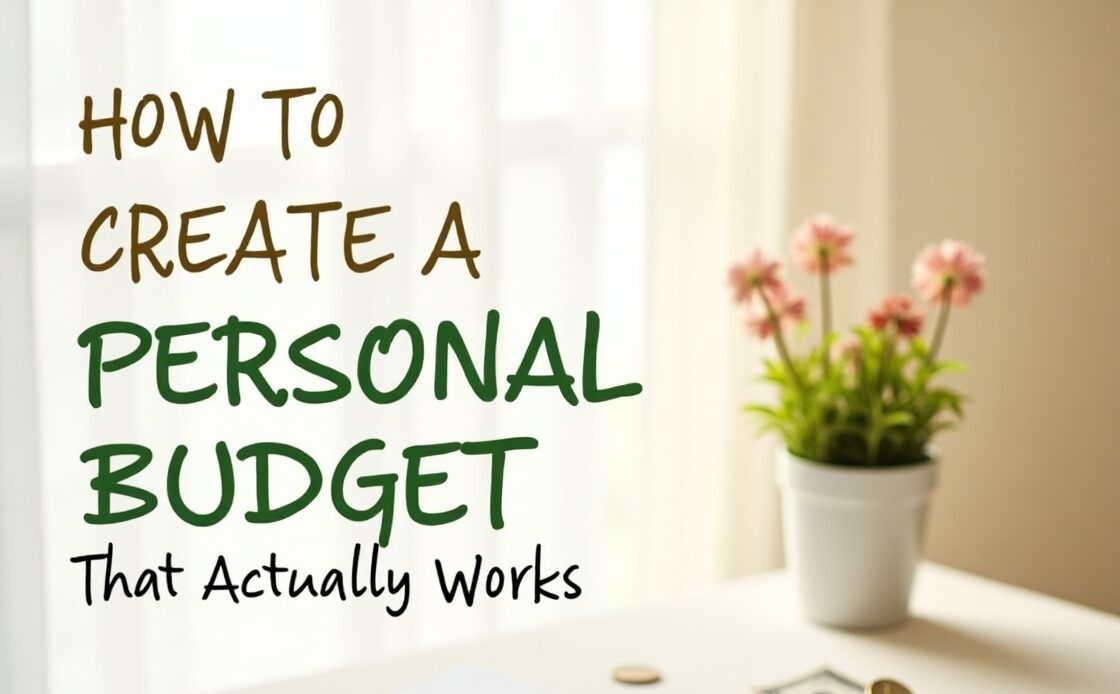Managing money can feel overwhelming, especially when expenses pile up and you’re not sure where your income is going. That’s where a personal budget comes in. A well-structured budget helps you take control of your finances, reduce stress, and move closer to your financial goals—whether that means getting out of debt, saving for a house, or investing for the future.
Why Budgeting Matters
A personal budget is more than just a spreadsheet. It’s a plan for your money that aligns your income with your goals and priorities. Without one, it’s easy to spend mindlessly, rack up debt, and delay your financial progress.
Budgeting brings clarity. It shows you exactly how much you earn, how much you spend, and where you might be wasting money. When you understand your financial habits, you can make smarter decisions.
Step 1: Know Your Income
Start with your net income—the amount you bring home after taxes and deductions. If you have multiple income sources, include them all. For freelancers or self-employed people, calculate an average based on the past three to six months.
Be realistic and consistent. Knowing your exact income gives you a solid foundation to create a budget that works month after month.
Step 2: Track Your Expenses
Next, analyze your spending. Look back at your bank and credit card statements over the last two to three months. Separate your expenses into categories such as:
- Housing (rent, mortgage)
- Utilities (electricity, internet)
- Food (groceries, dining out)
- Transportation (gas, public transit)
- Insurance (health, auto, etc.)
- Entertainment
- Subscriptions
- Savings and investments
- Debt payments
This step can be eye-opening. Many people discover they’re spending far more on categories like dining out or subscriptions than they realized.
Step 3: Choose a Budgeting Method
There are several popular methods for budgeting. Choose one that fits your lifestyle and financial personality.
The 50/30/20 Rule
This is a simple and popular method:
- 50% of your income goes to needs
- 30% to wants
- 20% to savings or debt repayment
Zero-Based Budgeting
In this method, every dollar has a job. Income minus expenses equals zero. You assign every dollar to a specific category, ensuring there’s no “leftover” money that can be spent impulsively.
Envelope System
This traditional method involves using physical envelopes for each spending category. Once the money in an envelope is gone, that’s it for the month. Today, many apps offer digital versions of this system.
Step 4: Set Financial Goals
Budgeting without goals is like driving without a destination. Set short-term and long-term goals to give your budget direction.
Short-term goals could include:
- Building a $1,000 emergency fund
- Paying off a credit card
Long-term goals might be:
- Buying a house
- Saving for retirement
- Starting a business
Make your goals SMART: Specific, Measurable, Achievable, Relevant, and Time-bound.
Step 5: Adjust and Monitor Regularly
A budget isn’t a one-time task. Review it monthly to adjust for life changes and refine your spending habits. Track your progress toward goals and make sure your budget still aligns with your current priorities.
Use apps like:
- Mint
- YNAB (You Need A Budget)
- PocketGuard
These tools can automate expense tracking, goal setting, and even send alerts when you’re close to overspending.
Common Budgeting Mistakes to Avoid
- Guessing your expenses instead of using actual numbers
- Forgetting irregular expenses like gifts, car repairs, or annual fees
- Not adjusting your budget as your income or goals change
- Being too strict and making your budget unrealistic or unsustainable
Budgeting is a balance between discipline and flexibility. It should guide your spending, not restrict your life.
Tips for Sticking to Your Budget
- Automate bill payments and savings transfers
- Review your spending weekly
- Use cash or prepaid cards to avoid overspending
- Involve your partner or family in the process
- Celebrate small milestones to stay motivated
Consistency is key. Over time, budgeting becomes a habit—and habits build your financial future.
Final Thought: Your Budget Is a Tool, Not a Cage
A personal budget should empower you, not punish you. It’s about making sure your money is working for you, not against you. As your goals evolve, so should your budget. Whether you’re saving for a dream vacation or working your way out of debt, the right budget will be your roadmap to financial confidence.
